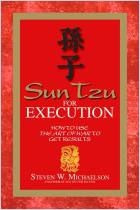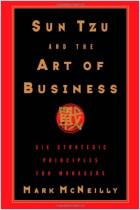
Ninja Innovation
The Ten Killer Strategies of the World’s Most Successful Businesses
ISBN: 9780062242327
Pages: 256
Recommendation
Gary Shapiro, head of the Consumer Electronics Association, studied tae kwon do, the Korean martial art, and earned his black belt. He realized that executives could learn from another class of martial-arts experts, Japan’s fabled warriors: the mysterious, ancient ninjas. These resourceful men used anything at hand to accomplish their deadly missions and became masters of innovation. Shapiro explains how to utilize his version of the ninjas’ ethos, strategies and tactics to achieve your business goals. Unfortunately, this isn’t exactly Sun Tzu on the Art of War. Shapiro floats his advice in off-topic, heated commentary about government, but just cut to the coverage of innovation. The book’s biggest asset is the 24-page epilogue in which Shapiro spells out how he built the International Consumer Electronics Show into the world’s dominant consumer-technology industry trade event. Despite its flaws, getAbstract finds that other association leaders can glean useful benefits from Shapiro’s ninja approach to innovation.
Summary
About the Author
Gary Shapiro heads the Consumer Electronics Association that runs the annual International Consumer Electronics Show. He wrote the bestseller The Comeback and is a columnist for the Huffington Post and Forbes.



















Comment on this summary